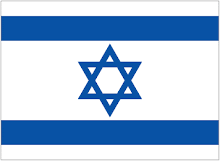"While dictators rage and statesmen talk, all Europe dances — to The Lambeth Walk."
Wednesday, 8 April 2009
More on False Claims of IDF War Crimes in Gaza
A short time ago I wrote a brief defence of the IDF after Israeli soldiers were accused of what amounts to cold-blooded murder, shooting civilians out of hand without reason or cause.
Those appalling allegations have since been proved to be false, as I knew they would be. Certain sections of the mainstream media still have a problem with this; the investigations weren't carried out independently, etc etc etc.
Well, over at the excellent Scandinavian blog Tundra Tabloids, KGS has stumbled across a piece in the Jerusalem Post by Major Danny Zamir, the man with whom many of the rumours were said to originate. Even he believes the Left-wing media got it wrong:
Att. Danny Zamir (Major, IDF reserves) wrote an op-ed in yesterday's J'lem Post describing the events that took place, how the media got it all wrong, and how the IDF conducts itself according its doctrine of military conduct and the guiding principle of "Purity of Arms", in other words preventing harm to those not involved in the conflict.
Personal code of IDF soldier: 'May our camp be pure'
A number of articles published recently in The New York Times quoted or were based on words spoken by myself and by graduates of the pre-army leadership development program which I head (the "Rabin Mechina") - graduates who participated as combat soldiers in Operation Cast Lead and who met recently to process personal experiences from the battlefield.
Both explicitly and by insinuation, the articles claim a decline in the IDF's commitment to its moral code of conduct in combat, and moreover, that this decline stems from a specific increase in the prominence of religious soldiers and commanders in the IDF in general, and from the strengthening of the position of IDF Chief Rabbi Avichai Ronsky in particular.
It was as if the media were altogether so eager to find reason to criticize the IDF that they pounced on one discussion by nine soldiers who met after returning from the battlefield to share their experiences and subjective feelings with each other, using that one episode to draw conclusions that felt more like an indictment. Dogma replaced balance and led to a dangerous misunderstanding of the depth and complexity of Israeli reality. The individual accounts were never intended to serve as a basis for broad generalizations and summary conclusions by the media; they were published internally, intended for program graduates and their parents as a tool to be used in the process of educating and guiding the next generation.I chose as well to submit the soldiers' accounts to the highest levels of the IDF, directly to the chief of staff, Lt. Gen. Gabi Ashkenazi, out of my deep faith in the solid moral foundations of IDF policy and in complete confidence that the accounts would receive serious and thorough attention, including both investigation and corrective measures, if and when necessary. This faith was and is based on my personal experience of more than two decades - as a combat solider, a major in the IDF and as mentor for hundreds of the Rabin Mechina's graduates who are soldiers serving in combat units (active and reserve).
There are, to be sure, important political differences between myself as a social-democratic Zionist and Zionists of other political opinions. But there exists among us a very broad consensus regarding the moral character of combat - a moral character to which the IDF is committed and educates its soldiers, a character positively influenced by religious mechinot and by the special personal qualities of my colleague Rabbi Ronsky.
THE GUIDING principle that directs IDF combat soldiers, both in their planning and conduct in combat, encompasses a balance between two needs: to defend soldiers' lives and to minimize harm to the civilians behind whom terrorists try to hide. This is expressed in the tension between the necessity of opening fire when the soldiers' security and battle conditions require, even when there's a danger to civilians (providing advance warning to the extent possible), and the absolute obligation to hold fire and to act with due compassion toward civilians when it appears that they have no evil intent. In addition, basic respect toward civilians' belongings and their religious and spiritual property is part of this moral code.
These guidelines and the obligation to uphold them are an inseparable part of the Jewish-Zionist world of IDF soldiers, and deeply anchored in generations of Jewish heritage, particularly in the doctrine of military conduct renewed by the early socialist-Zionists a century ago. They called this principle by a name that's unlikely to have been given by any other nationalist movement fighting for its independence: "Purity of Arms" - that is, preventing harm to those not involved in or supporting the combat.
This moral commandment remains a central motto of the IDF; it is the complete opposite of the code of conduct of Islamist terror organizations such as Hamas, whose judgment on every Israeli and Jew is death. "Purity of arms" is not part of their world, not even in theory.The outsider may not understand this, but we - the Jews of the State of Israel - live this every day, every hour. More here.
I am still waiting for an apology from those who wished to hound Israeli soldiers with these unfounded allegations, and I realise I shall probably wait in vain.
However, the IDF deserve an apology from their accusers - it is only morally right. People have attempted to besmirch the reputation of a fundamentally honourable organisation which must function under difficult circumstances even in 'peace'; they have done this whilst hiding under the cloak of concern for 'human rights'.
If they are serious about their cause, they should issue an apology - not only to do their part in taking an undeserved stain off of the IDF's reputation, but lest they never be taken seriously again.
Those appalling allegations have since been proved to be false, as I knew they would be. Certain sections of the mainstream media still have a problem with this; the investigations weren't carried out independently, etc etc etc.
Well, over at the excellent Scandinavian blog Tundra Tabloids, KGS has stumbled across a piece in the Jerusalem Post by Major Danny Zamir, the man with whom many of the rumours were said to originate. Even he believes the Left-wing media got it wrong:
Att. Danny Zamir (Major, IDF reserves) wrote an op-ed in yesterday's J'lem Post describing the events that took place, how the media got it all wrong, and how the IDF conducts itself according its doctrine of military conduct and the guiding principle of "Purity of Arms", in other words preventing harm to those not involved in the conflict.
Personal code of IDF soldier: 'May our camp be pure'
A number of articles published recently in The New York Times quoted or were based on words spoken by myself and by graduates of the pre-army leadership development program which I head (the "Rabin Mechina") - graduates who participated as combat soldiers in Operation Cast Lead and who met recently to process personal experiences from the battlefield.
Both explicitly and by insinuation, the articles claim a decline in the IDF's commitment to its moral code of conduct in combat, and moreover, that this decline stems from a specific increase in the prominence of religious soldiers and commanders in the IDF in general, and from the strengthening of the position of IDF Chief Rabbi Avichai Ronsky in particular.
It was as if the media were altogether so eager to find reason to criticize the IDF that they pounced on one discussion by nine soldiers who met after returning from the battlefield to share their experiences and subjective feelings with each other, using that one episode to draw conclusions that felt more like an indictment. Dogma replaced balance and led to a dangerous misunderstanding of the depth and complexity of Israeli reality. The individual accounts were never intended to serve as a basis for broad generalizations and summary conclusions by the media; they were published internally, intended for program graduates and their parents as a tool to be used in the process of educating and guiding the next generation.I chose as well to submit the soldiers' accounts to the highest levels of the IDF, directly to the chief of staff, Lt. Gen. Gabi Ashkenazi, out of my deep faith in the solid moral foundations of IDF policy and in complete confidence that the accounts would receive serious and thorough attention, including both investigation and corrective measures, if and when necessary. This faith was and is based on my personal experience of more than two decades - as a combat solider, a major in the IDF and as mentor for hundreds of the Rabin Mechina's graduates who are soldiers serving in combat units (active and reserve).
There are, to be sure, important political differences between myself as a social-democratic Zionist and Zionists of other political opinions. But there exists among us a very broad consensus regarding the moral character of combat - a moral character to which the IDF is committed and educates its soldiers, a character positively influenced by religious mechinot and by the special personal qualities of my colleague Rabbi Ronsky.
THE GUIDING principle that directs IDF combat soldiers, both in their planning and conduct in combat, encompasses a balance between two needs: to defend soldiers' lives and to minimize harm to the civilians behind whom terrorists try to hide. This is expressed in the tension between the necessity of opening fire when the soldiers' security and battle conditions require, even when there's a danger to civilians (providing advance warning to the extent possible), and the absolute obligation to hold fire and to act with due compassion toward civilians when it appears that they have no evil intent. In addition, basic respect toward civilians' belongings and their religious and spiritual property is part of this moral code.
These guidelines and the obligation to uphold them are an inseparable part of the Jewish-Zionist world of IDF soldiers, and deeply anchored in generations of Jewish heritage, particularly in the doctrine of military conduct renewed by the early socialist-Zionists a century ago. They called this principle by a name that's unlikely to have been given by any other nationalist movement fighting for its independence: "Purity of Arms" - that is, preventing harm to those not involved in or supporting the combat.
This moral commandment remains a central motto of the IDF; it is the complete opposite of the code of conduct of Islamist terror organizations such as Hamas, whose judgment on every Israeli and Jew is death. "Purity of arms" is not part of their world, not even in theory.The outsider may not understand this, but we - the Jews of the State of Israel - live this every day, every hour. More here.
I am still waiting for an apology from those who wished to hound Israeli soldiers with these unfounded allegations, and I realise I shall probably wait in vain.
However, the IDF deserve an apology from their accusers - it is only morally right. People have attempted to besmirch the reputation of a fundamentally honourable organisation which must function under difficult circumstances even in 'peace'; they have done this whilst hiding under the cloak of concern for 'human rights'.
If they are serious about their cause, they should issue an apology - not only to do their part in taking an undeserved stain off of the IDF's reputation, but lest they never be taken seriously again.
Subscribe to:
Post Comments (Atom)
.jpg)
















































































No comments:
Post a Comment